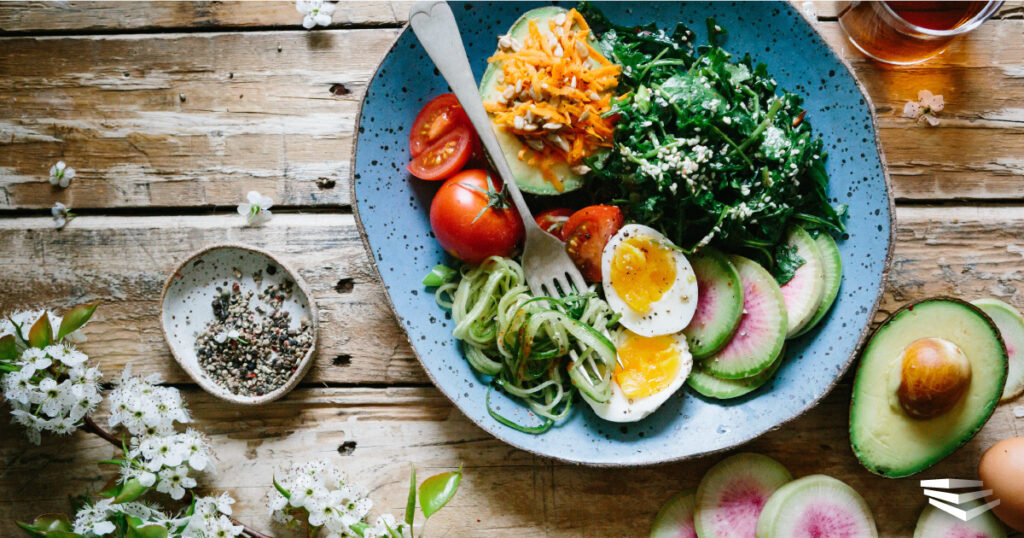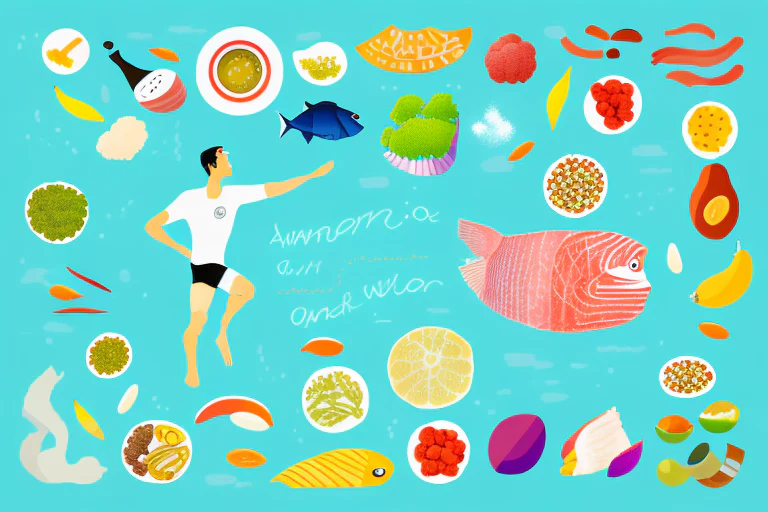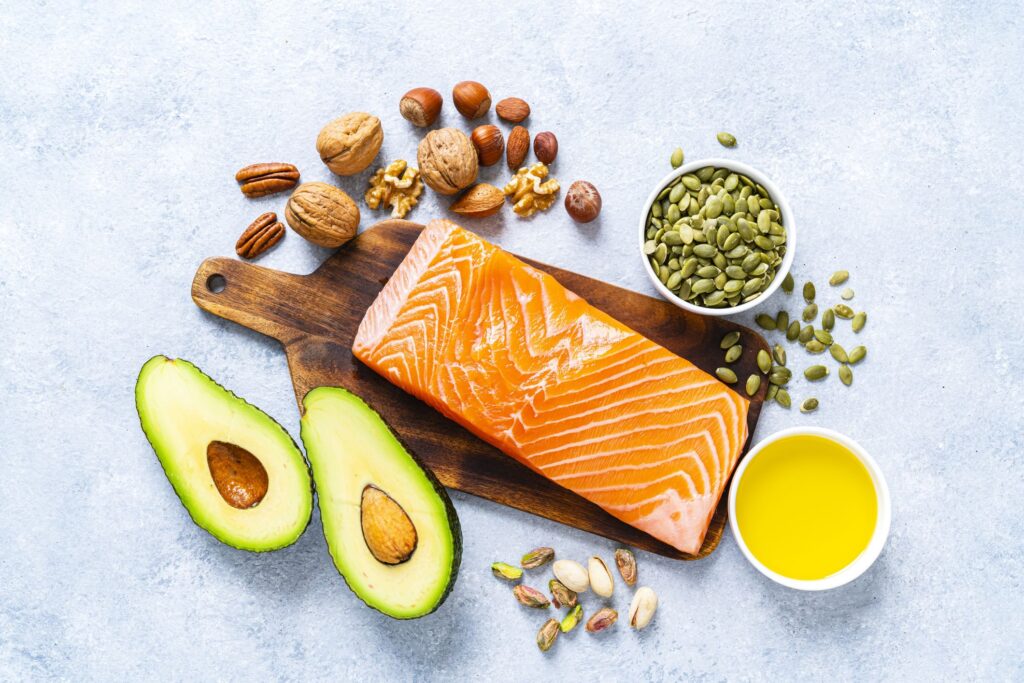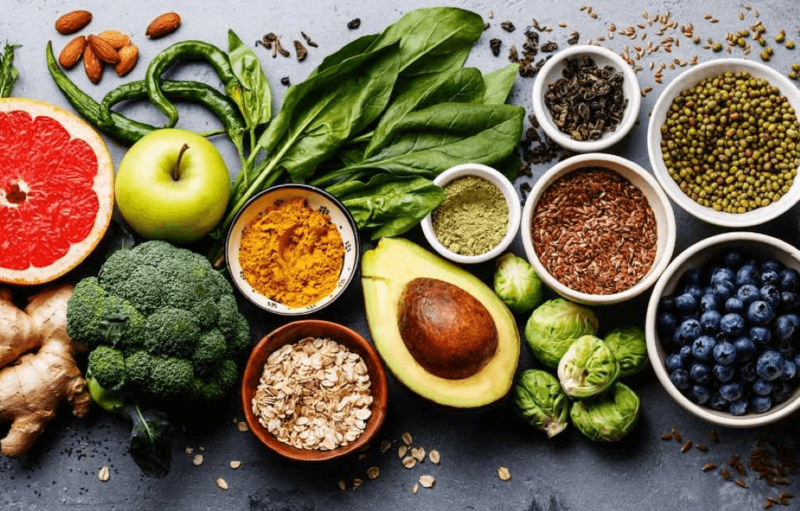Swimming demands a high level of physical exertion and energy, making nutrition a crucial aspect of a swimmer’s training and competition regimen. A well-structured diet not only fuels the intense workouts but also aids in recovery and overall performance. This article explores the dietary strategies that can help swimmers achieve championship-level results.
Key Takeaways
- Understanding the balance of macronutrients is crucial for meeting the energy demands of swimming.
- Proper meal timing can enhance performance and optimize recovery.
- Hydration is as important as food intake in a swimmer’s diet.
- A strategic approach to carbohydrate management can significantly affect a swimmer’s performance.
- Young swimmers have unique nutritional needs that must be addressed to support their growth and training demands.
Fueling for the Pool: What’s on the Menu?
Balancing Macronutrients
To keep your energy levels high and your strokes powerful, balancing macronutrients is key. Carbohydrates are the primary energy source for swimmers, providing the necessary fuel for both intense sprints and prolonged endurance sessions. Proteins are crucial for muscle repair and growth, while fats should not be overlooked as they provide a sustained energy source.

Macronutrients
Timing Your Meals
It’s not just what you eat, but when you eat that can impact your performance in the pool. A strategic approach to meal timing ensures that energy levels are optimized. For instance, eating a carbohydrate-rich meal 2-3 hours before training can boost your stamina, while a protein-focused recovery meal post-workout aids in muscle repair.
Hydration Essentials
Staying hydrated is non-negotiable in swimming. Dehydration can lead to decreased performance and increased fatigue. Aim to drink at least 500 ml of water two hours before your swim and continue sipping small amounts regularly during your session. Post-swim, replenish any lost fluids to aid recovery and prepare for the next challenge.
Pre-Competition Nutrition: Eating for Victory
Carb Loading Strategies
The day before your competition is crucial for carb loading. Focus on meals and snacks rich in complex carbohydrates to ensure your glycogen stores are fully charged. This preparation helps you maintain high energy levels throughout the competition day.
Last Minute Snacks
During competition day, keep your energy up with light, carbohydrate-rich snacks. Options like fruit, cereal bars, and sport bars are perfect for maintaining energy between events. It’s important to choose snacks that are familiar and well-tolerated to avoid any digestive discomfort.
Post-Event Recovery Foods
After the competition, your focus should shift to recovery. Opt for foods that provide a good mix of proteins and carbohydrates to help repair muscles and replenish energy stores. A balanced meal post-event can significantly affect your recovery speed and quality.
Daily Dietary Routines for Swimmers
Structured Meal Planning
Swimmers should aim for a structured meal plan that supports their intense training schedules. A 14-day meal plan can be a great way to ensure all nutritional needs are met. This plan should include a variety of nutrient-dense foods to cover all micronutrient requirements. For instance, high-quality proteins like chicken, fish, and eggs are crucial for muscle repair and building.

Meal planning
Snacking for Sustained Energy
To maintain energy levels throughout long training sessions, swimmers can rely on smart snacking. Options like yogurt, nuts, and fruits not only provide quick energy but also help in recovery and maintaining energy levels. It’s important to choose snacks that are easy to digest and can be consumed on the go.
Adapting to Training Cycles
Swimmers’ dietary needs change with their training cycles. During intense training phases, carbohydrate intake might increase to support energy demands. Conversely, during lighter training days or recovery periods, the focus might shift more towards proteins and fats to aid in muscle recovery and reduce inflammation.
Note: Always adjust your diet to the current phase of your training cycle to optimize performance and recovery.
The Role of Protein and Fats in a Swimmer’s Diet
Optimal Protein Intake
Protein is a powerhouse for swimmers, helping to repair and build muscles worn out from intense training. Aim for 1.2 to 1.7 grams of protein per kilogram of body weight daily. This should be spread across meals and snacks to maximize absorption and support muscle recovery.
Importance of Healthy Fats
Don’t shy away from fats! They’re crucial for long-term energy and help absorb essential vitamins. Focus on sources like olive oil, nuts, and avocados. Incorporating healthy fats into each meal ensures a balanced diet and sustained energy levels.
Meal Examples
Here’s how a 150-pound swimmer might structure their intake:
| Meal Type | Carbohydrates | Protein | Fats |
|---|---|---|---|
| Breakfast | 115-180 g | 25-30 g | 20 g |
| Lunch | 115-180 g | 25-30 g | 20 g |
| Dinner | 115-180 g | 25-30 g | 20 g |
| Snack | 45-60 g | 10-20 g | 5-15 g |
Consistency in your diet is key. Adjust these numbers based on your training intensity and body weight changes.
Carbohydrate Management for Peak Performance
Carb Types and Timing
Understanding the types of carbs and their timing is crucial for swimmers. Complex carbohydrates like whole grains, fruits, and vegetables should be the backbone of your diet, especially during high-intensity training periods. Timing your carb intake to fuel your workouts and aid recovery is just as important. For instance, consuming a carbohydrate-rich snack or meal about 1-2 hours before training can boost your energy levels and performance.
Managing Intake Around Workouts
It’s all about balance when it comes to managing carbs around workouts. Here’s a quick guide:
- Before workouts: Aim for a light, carb-rich snack to provide quick energy.
- During workouts: Sipping on a carbohydrate solution can help maintain energy levels.
- After workouts: This is the time to replenish with carbs to aid in recovery and prepare for the next session. Tables showing how to periodize carbohydrate intake can be really helpful here to match your training demands.
Carbs and Recovery
Post-workout recovery is essential, and carbs play a big role in this. After draining your energy stores, a mix of carbs and protein can help rebuild muscle glycogen and repair tissues. This is the time when your body is most receptive to nutrient uptake, so don’t skimp on the carbs!

Carbs and Recovery
Read more: Crafting a Nutrition Plan for Competitive Swimmers
Nutritional Challenges and Solutions in Swimming
Dealing with Varied Energy Demands
Swimmers face a dynamic challenge when it comes to energy needs. Depending on the training phase, competition schedule, and individual metabolic rates, the energy and carbohydrate requirements can fluctuate significantly. Swimmers must adapt their diet to these changing demands to maintain optimal performance and recovery.
Nutrition for Different Training Phases
Each phase of training—whether it’s off-season, pre-season, or peak competition times—demands specific nutritional strategies. For instance, during heavy training periods, increased carbohydrate and protein intake is crucial to support energy levels and muscle repair. Conversely, during lighter training periods, managing calorie intake becomes more important to avoid unwanted weight gain.
Common Dietary Mistakes
One of the biggest pitfalls for swimmers is not tailoring their nutrition to their current training demands. This can lead to either insufficient energy for peak performance or excess intake leading to weight gain. Educating swimmers on how to adjust their meals and snacks according to their training cycles is essential. Meal planning and preparation skills are key to implementing these strategies effectively.
Special Considerations for Young Swimmers
Age-Appropriate Diet Adjustments
Young swimmers have unique nutritional needs that change as they grow. It’s crucial to adjust their diets to support both their developmental stages and their training demands. Balancing macronutrients and ensuring adequate micronutrient intake are key to supporting their growth spurts and intense training schedules.

Balancing macronutrients
Nutrition for Growth and Development
During periods of rapid growth, young swimmers require increased energy and nutrients. A focus on high-quality proteins, calcium for bone development, and iron for blood health is essential. Avoiding rapid weight fluctuations is also critical for maintaining overall health and optimal performance.
Balancing School and Training Diets
Managing a young swimmer’s diet with their school schedule can be challenging. They need a plan that includes meals and snacks that are easy to consume on the go and align with their energy needs for both school and training. Meal timing should ensure they have the energy to excel both academically and in the pool.
Ensuring the safety and enhancing the skills of young swimmers is crucial. At Swim Time Log, we are dedicated to providing comprehensive resources and training for young enthusiasts. Whether you’re looking for the best swimming techniques or nutritional advice, our website is your go-to hub. Visit our ‘Knowledge’ section to explore more and help your young swimmer thrive both in and out of the water.
Wrapping It Up
As we’ve explored, a swimmer’s diet is crucial for achieving championship-level results. From understanding the specific nutritional needs during training and competition phases to incorporating the right balance of proteins, fats, and carbohydrates, every meal counts. Remember, it’s not just about eating to stay energized; it’s about eating smart to optimize recovery and performance. So, take these tips, tailor them to your training regimen, and dive into your next swim meet with confidence and a well-fueled body!
Read more: Mastering Freestyle Kicking Technique: A Guide for Swimmers
AUTHOR
Sang Nguyen
Sang Nguyen is a former national swimmer for Vietnam who has transitioned into coaching. With a passion for fostering a healthy swimming community and connecting like-minded individuals,......Read More
BLOG
Maybe You Are Interested
Good Swim Meet Snacks: What to Eat for Optimal Performance
Good nutrition is crucial for swimmers to maintain energy, recover quickly, and perform at their...
Read More...Optimizing Your Performance: The Best Diet for Swimming Training
Optimizing your performance in swimming is not just about rigorous training; it’s equally crucial to...
Read More...Achieve Peak Performance with This Diet Chart for Swimmers
Whether you’re a novice or an expert swimmer, understanding the right diet is crucial for...
Read More...Eating Like a Champion: Exploring the Diet of Michael Phelps
Michael Phelps, renowned for his Olympic triumphs, has a diet as extraordinary as his swimming...
Read More...Muscle Gain for Swimmers: Tailoring Your Diet for Strength
Swimming is a demanding sport that requires a tailored approach to nutrition to support muscle...
Read More...A Comprehensive Diet Plan To Gain Weight For Swimmers
Swimming is a demanding sport that requires meticulous attention to nutritional needs to optimize performance,...
Read More...